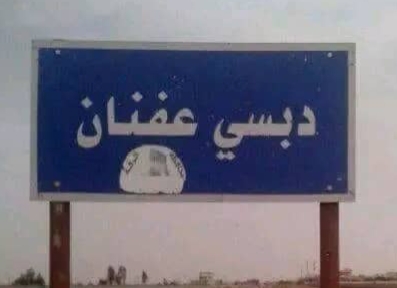News
More than 25 villages in the western countryside of Tabqa are almost deserted due to the absence of services

More than 25 villages in the western countryside of Tabqa, which are under the control of the Syrian government, lack basic and necessary services for life, such as electricity and water, despite years having passed since their liberation from ISIS.
The service and living conditions did not help the people return to their villages, which they left almost deserted as a result of the battles and military operations with the organization 7 years ago.
While most of the residents of those villages resorted to residing in the Autonomous Administration areas due to the availability of better services than those found in those areas, and the presence of more job opportunities, compared to their areas where the infrastructure was destroyed without real reconstruction operations that would restore life to the area.
The Syrian government forces expelled ISIS from the western countryside of the city, which is adjacent to the administrative borders of the city of Aleppo, in March 2017, coinciding with the liberation of the city of Tabqa by the Syrian Democratic Forces and the International Coalition.
There are dozens of villages, more than 25 villages, extending from the village of Dibsi Faraj, the last village in Raqqa Governorate, to the village of Shuaib Al-Zikr, where albu Assi crossing is located, which separates the areas of the Autonomous Administration from the areas under the control of the Syrian government.
Dozens of villages are spread across this geography, the largest of which are Dibsi Afnan, Dibsi Faraj, Al-Qadisiyah, Al-Ghajar, Ghazala, Al-Ramthan, and Shuaib Al-Zikr.
Abdullah Al-Hashem (a pseudonym), a resident of one of the villages in the western Tabqa countryside under the control of the Syrian government, tells ASO News Network that the situation in the region is tragic and “it lacks everything,” as he put it.
He added that agricultural projects stopped a long time ago and agriculture turned into rain-fed agriculture as a result of irrigation projects being out of service after being booby-trapped and blown up by ISIS and the government not rehabilitating them.
He pointed out that the region was famous for its agriculture, with the existence of a huge agricultural project called (Maskanah East), which irrigated 17,000 hectares of land extending west from the village of Al-Rada, east of the town of Maskana, to the village of Shuaib Al-Zikr, east.
According to Al-Hashem, the region lacks fuel, and the price of a liter of free diesel reaches more than 17 thousand Syrian pounds, he said.
Drinking water is also almost cut off in the village of “Al-Hashem,” who preferred not to mention the name of his village for security reasons. Despite more than 7 years having passed since the expulsion of ISIS from the area, the water station located on the banks of the Euphrates Lake has not been maintained or rehabilitated, according to him.
The electricity was also cut off after electricity poles and cables were stolen in the area. Some people depend on solar energy, while the poor families live in darkness, according to the people.
The loss of basic services and necessary necessities of life was the main reason why most people did not return to their villages, and the number of returnees did not exceed 30 percent. In addition to this, the people of the villages located south of Dibsi Afnan district, close to the desert, fear the spread of ISIS cells there.
According to local sources from villages in the Dibsi Afnan district, there is very little bread, as two loaves of bread per day are distributed to each person and it is not enough for a family, so the people are forced to rely on saj bread.
As for the health situation, residents describe it as “catastrophic,” as there are a few medical clinics in the village of Dibsi Afnan and a dispensary devoid of specialized doctors and medicines.
Those remaining in these villages in emergency cases, childbirth cases, and medical examinations are forced to travel to the city of Aleppo, which is more than 120 km away, which sometimes makes it difficult to treat patients due to the lack of always available transportation in the area as a result of the loss of fuel.
– The photo is from the internet
